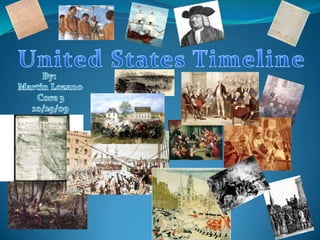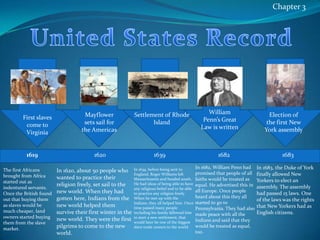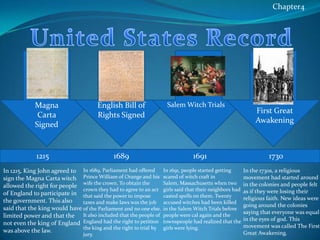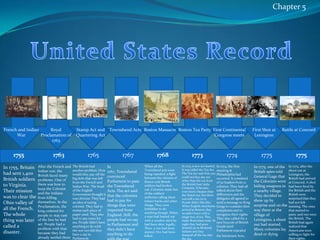William Penn establishes religious freedom in Pennsylvania in 1682. The Duke of York allows the election of the first New York assembly in 1683. The Mayflower sets sail from England to America in 1620 carrying the first Pilgrims. Rhode Island is settled in 1639 by Roger Williams seeking religious freedom. The first slaves arrive in Virginia in 1619. These events established the foundations of the early American colonies and the introduction of slavery.



